Many thanks to everyone for all your kind comments via email and in comments and elsewhere about loss of my mum. I haven’t been able to respond individually, but please know Lynn and I appreciate every one of them.

Kia ora. Long stories short, here’s my top six things to note in Aotearoa’s political economy around housing, climate and poverty on Tuesday, October 22.
Australia’s jobs market is proving much more resilient to higher interest rates than New Zealand’s, helping to accelerate the historic exodus of workers across the Tasman at a rate of one A320 load a day.
In the scoop of the day, Matt Nippert reports via NZ Herald-$$$ that the non-tax-paying childcare charity Best Start (previously Kidicorp) paid its owners, the Wright Family Foundation, NZ$37 million this year after making operating profits of $32 million from $262 million of government subisidies within total turnover of $370 million.
In the deep-dive of the day, Sophie Trigger reports via NZ Herald that Ministry of Social Development officials warned their minister that using payment cards as a sanction for beneficiaries could be stigmatising and open to exploitation, but Minister Louise Upston went ahead anyway, saying it worked for New Zealand.
In solutions news, Zita Campbell reports via 1News on a forestry company that wants to set steel nets to catch slash.
In number of the day, 400 Health NZ staff accepted redundancy on the same day it emerged Corrections had increased staff numbers by 600.
The chart of the day shows the collapse of New Zealand jobs availability and an explosion in the number of applications per job.
(There is more detail, analysis and links to documents below the paywall fold and in the podcast above for paying subscribers. If we get over 100 likes we’ll open it up for public reading, listening and sharing.)
What’s driving the exodus of workers to Australia
I stumbled across this chart yesterday that shows the astonishingly quick deterioration in New Zealand’s jobs market in the last six months. It shows the number of job applications per job on Seek’s New Zealand site has more than trebled in 2024 to almost double the worst Covid levels. The same chart for Australia shows just a doubling of job applications per job to same levels as Covid.
Australia’s jobs market is much healthier than New Zealand’s despite, ostensibly, the same monetary policy and similar forces in the global economy, especially around demand for its exports from China, which have also fallen.
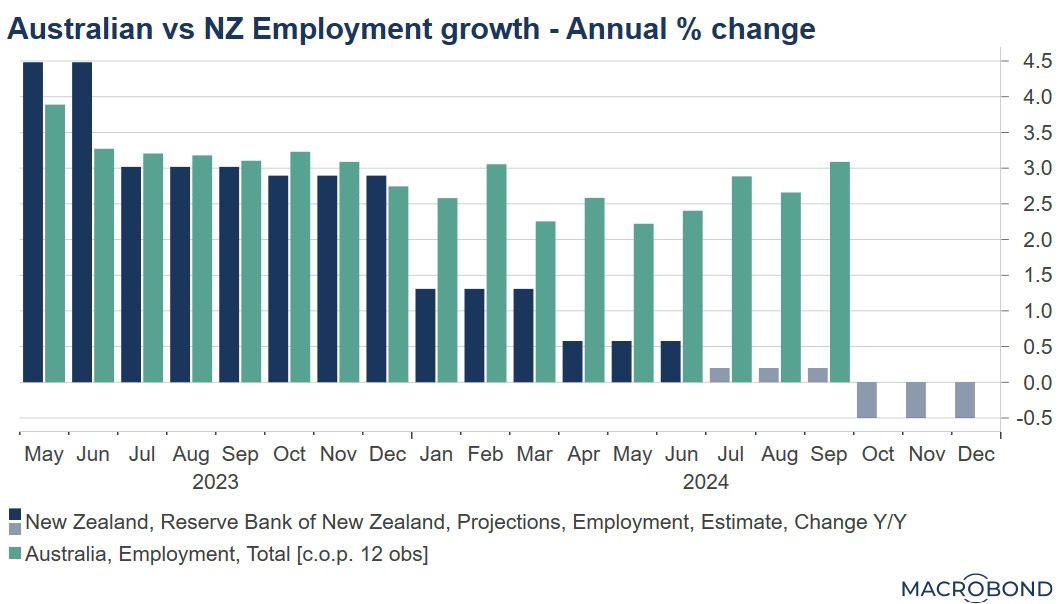
The differences behind the relatively more robust market for jobs there are:
the Reserve Bank of Australia started tightening later (May 2022) than the Reserve Bank of New Zealand (October 21);
the RBA tightened less (425 basis points) than the RBNZ (525 basis points);
New Zealand’s new National-ACT-NZ First Government is tightening fiscal policy by cumulative four percentage points of GDP within the next three years, more than it ever has on a per-capita and real basis; while,
Australia’s Federal and State Governments have loosened fiscal policy by a collective one percentage point of GDP over the last year; and,
local, state and Federal Governments in Australia have expanded their spending and investment over the last five years, while New Zealand’s new Government is clamping down.
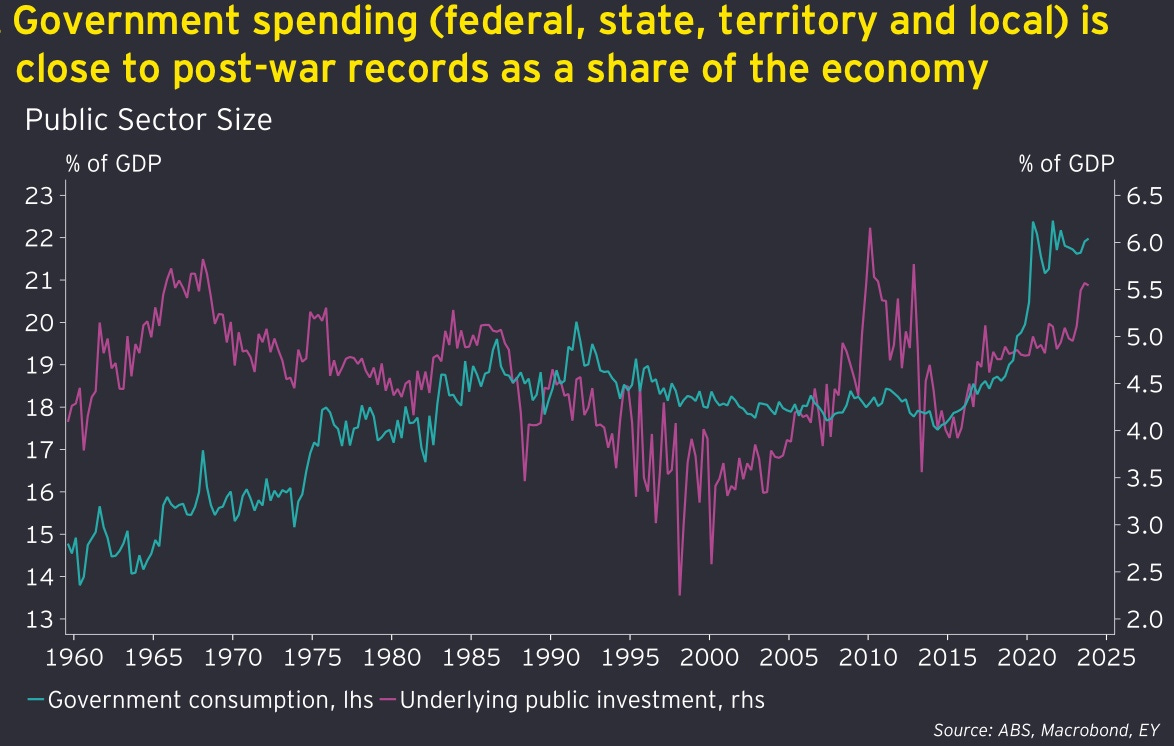
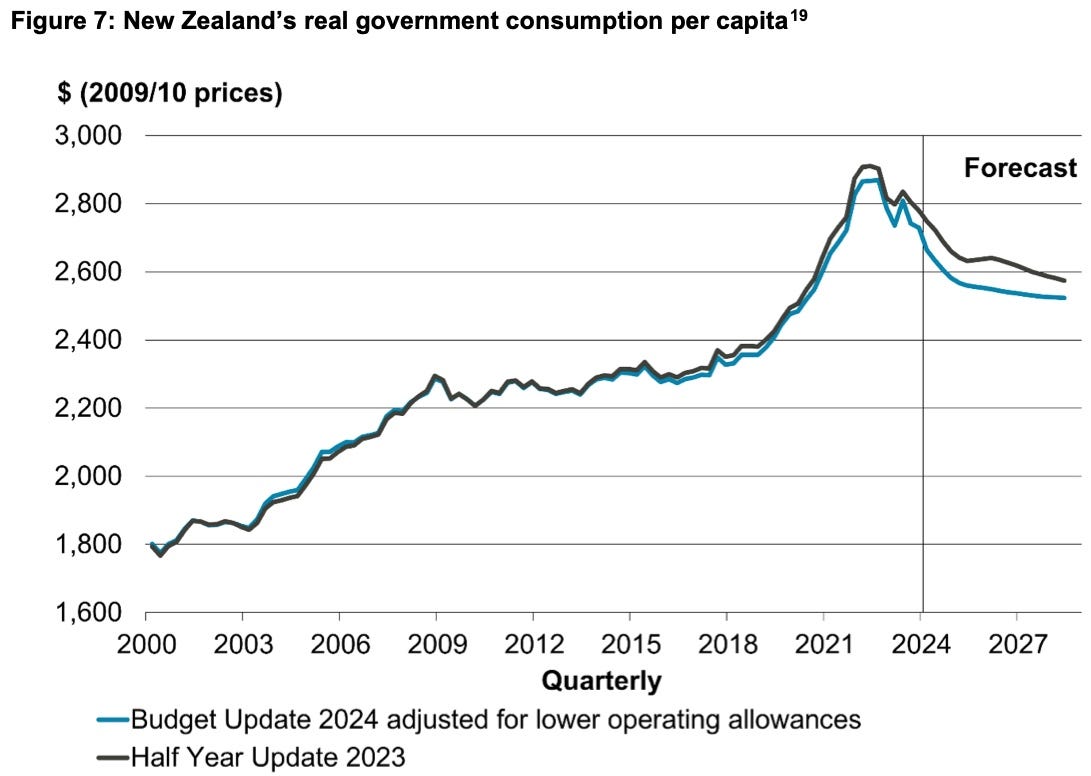
The end result of this difference in demand for workers, along with the existing pay and pensions gaps, is in this chart below showing the correlation (at least) between the difference in Australian and New Zealand unemployment rates, and the net flow of New Zealanders to Australia to work permanently.
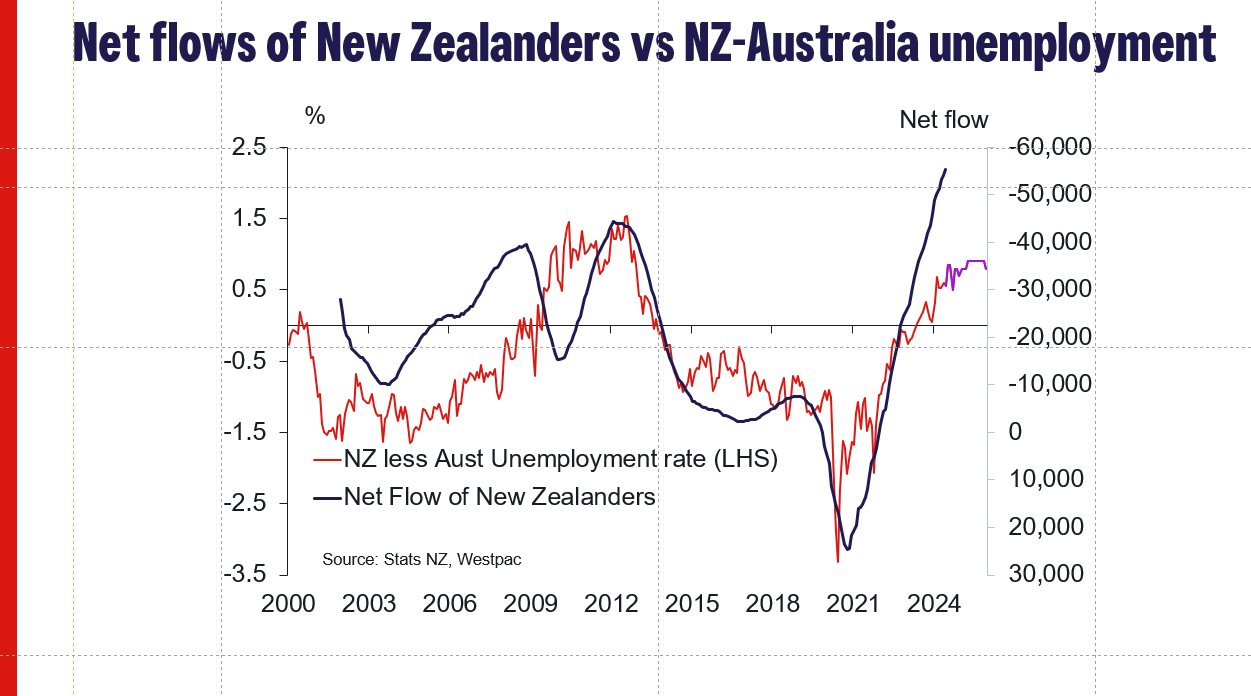
The Kākā’s Journal of Record for Tuesday, October 22
Infrastructure: Ipsos' 2024 global survey on perceptions of infrastructure found just 17% of NZers consider NZ to have a good record of delivering national infrastructure, compared to a 33% global average. 55% of Kiwis believe increasing the housing supply should be prioritised, compared to a 39% global average. NZ Herald
Environment: Agriculture Minister Todd McClay announced that primary producers and councils won't need consents for certain kinds of discharges into waterways under the upcoming second Resource Management Amendment Bill. Recent High Court rulings would have required consents for previously permitted discharges; McClay said the upcoming Bill will "safeguard permitted activities".
Transport: Transport Minister Simeon Brown announced that work has begun to add two more lanes to the Hawke's Bay Expressway. Seven other new Roads of National Significance projects will begin procurement or construction over the next three years, although Brown did not give completion estimates.
Health: The Public Health Communication Centre recommended that the Ministry of Health's suicide prevention plan for 2025-2029 move beyond a psychiatric perspective to address the structural determinants of NZ's high suicide rate, including poverty and the impacts of colonisation. The PHCC also recommended NZ follow Australia by implementing a suicide register to improve data access.
People moves: KiwiSaver scheme Simplicity appointed New Zealand Institute of Economic Research principal economist Shamubeel Eaqub as its new chief economist & head of policy. Eaqub will collaborate with Rosie Collins, an economist focused on wealth inequality, climate change, and urban housing systems.
Retirement: The Labour Party said the Government's decision to delay amendments to the Retirement Villages Act until the next Parliamentary term will benefit village operators, but not residents. Associate Minister of Housing Tama Potaka said upcoming changes to the Act are meant to “safeguard the interests of village residents”, and will focus on maintenance & repairs, complaints management, and repayments when residents exit a village.
Cartoon of the day
Nature pic of the day
Ka kite ano
Bernard




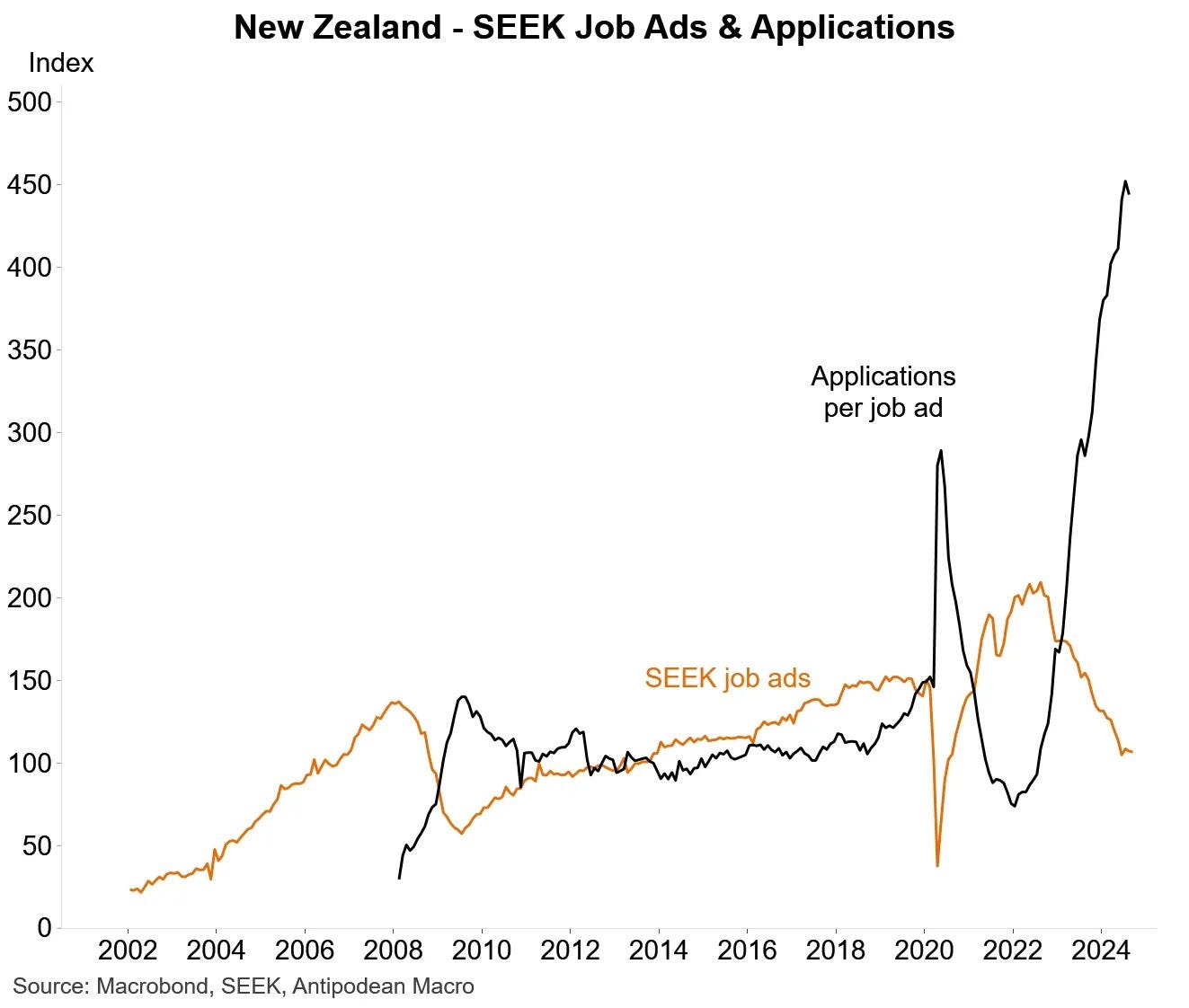











Share this post